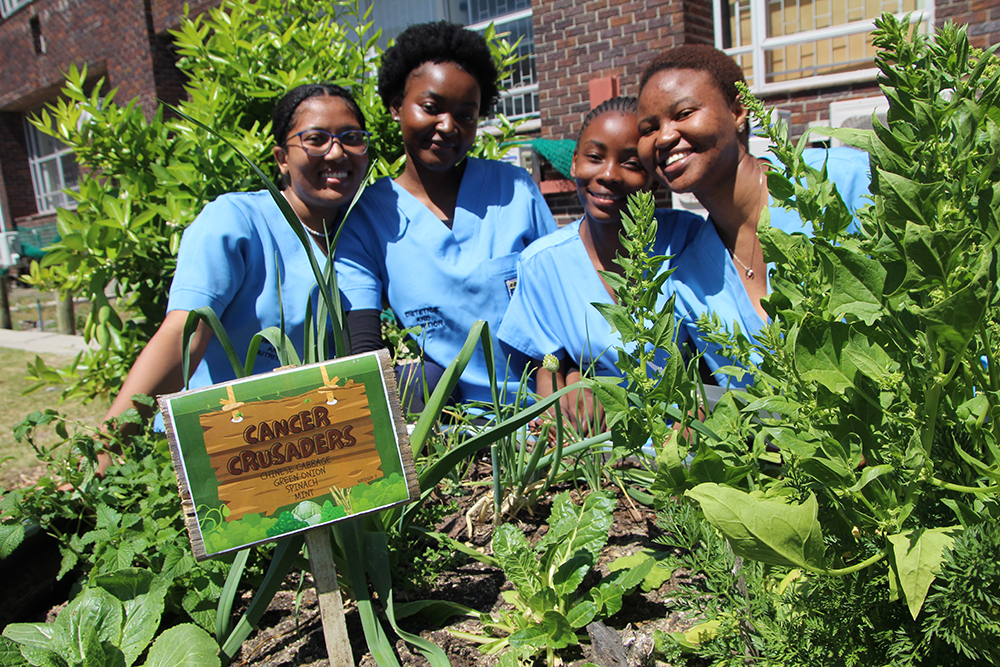By Johannah Malogadihlare
The Dietetics and Nutrition Department of the Western Cape University has emphasised the importance of facilitating garden projects as a means to address food shortages and poverty.
Third year BSc dietetic students are working on the project.
“It was inspiring to see how our efforts allowed students to apply community-based programming principles as part of an assignment based on nutritional programming principles, that aimed to highlight and promote a healthy food environment on campus where nutrients can flourish and students can thrive,” said dietetics lecturer Elsabe Nel said.
She said the garden consisted of indigenous and medicinal plants that would fulfil the curriculum requirements of students, while assisting the pedagogical requirements of staff.
Several students expressed their experience during the entire process as being fun and gratifying.
Third-year student Caleigh Hanekom celebrated being able to identify useful plants in her studies.
“We can now identify some of the vegetable and medicinal plants. The entire process was a lot of fun,” Hanekom said.
UWC horticulturist and manager of gardens and grounds maintenance section, Jade Leon, praised the development and growth of the project since it started three years ago.
“It started off small three years ago, and has now become a much bigger garden. It’s a good initiative, and in the long run, gardens like these could become a solution to food insecurity issues experienced on campus,” Leon said.
National Research Fund nutrition head, Prof. Rina Swart mentioned that finding a suitable space to produce food has been a challenge for a long time.
Swart said that she believed that the food garden would inform the development of effective nutrition programmes and improve dietary diversity in communities.
Her department confirmed that while the garden’s establishment aligned with the university’s goal of reaching global sustainable development goals, the concept addressed the first and second goals of no poverty and zero hunger.
Swart also emphasised the importance of the garden as a means to expose students with practical experience and to enhance their understanding of nutrition and sustainable food systems.
INSIDE EDUCATION







